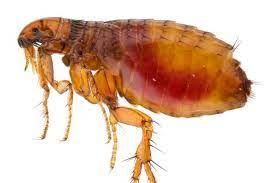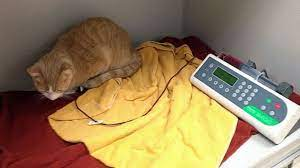Anemia means the red blood cells in an individual’s body are low. This is very important as red blood cells (RBCs) carry oxygen throughout the body and ensure the organs can function. When oxygen stores are low it becomes difficult for the body to do many simple tasks, including:
- Produce ATP or energy for many functions including movement
- Help us breathe
- Enable the heart to contract and pump blood
- Allow the body to perform its metabolic functions
- And more
Without oxygen, tissues can begin to die as well. Organs like the kidneys and the liver that demand blood flow, nutrients and a good oxygen supply start to fail. So, make no mistake, serious anemia is serious.

A normal animal’s RBC (or lack of anemia is usually in the 30s to 40s. Some small dog breeds are often a little higher in the 50-percent range. An individual can often maintain somewhat normal function with a low-grade anemia, but once the RBC percentage drops into the mid and lower 20s, serious problems as mentioned above can occur.
Also, a fast drop of RBCs say from a sudden traumatic loos of blood is harder for the body to deal with than a slow progressive decline. In short, there are a range of reasons for anemia, but it’s a serious problem and the cause should be found and if possible treated.
Causes of anemia:

- There are infectious causes of anemia such as mycoplasma infections in cats.
- Parasitism, including severe flea infestations and intestinal parasitism such as hookworms can also result in anemia
- Loss from hemorrhage (traumatic, cancer or rodenticides that prevent clotting
- Immune-mediated causes where clotting factors like platelets are destroyed allowing bleeding that normally wouldn’t happen or RBCs are attacked and destroyed
- Decreased production from suppression of the bone marrow (leukemias can do this) or severe kidney disease
Treatment of anemia:

Treating anemia requires knowing the cause and addressing it at it’s root. If from a parasitic infection, then treating the parasitism is needed. If from hemorrhage, then stopping the hemorrhage quickly is imperative. If immune-mediated, then immunosuppressants are likely needed.
In severe cases when the RBCs are to low for an individual’s body to perform it’s normal functions, a RBC transfusion is needed right away to help stabilize your pet. This helps keep your pet safe while your veterinarian or team of veterinarians identify the cause and work to treat it.
How do you know if your pet is anemic?
Low grade anemia can be hard to identify, but as it progresses you may notice weakness, poor energy or lots of sleeping. Your pet’s gums also may not look so pink. Also, if fleas are noted, especially in young puppies and kittens, keep in mind that this alone can lead to severe anemia.
If you suspect your pet may be anemic, don’t wait. Take him or her to see your veterinarian and some simple tests can be done to determine if your pet’s red blood cells are too low. If they are, your veterinarian will then likely recommend some further testing to uncover the cause and, if severe, may tell you that a transfusion is needed.


